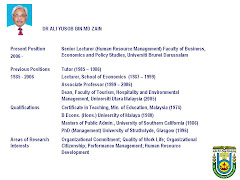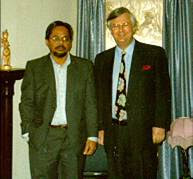Office politics are a reality. The term politics has a very negative connotation, perhaps because we have all run into those people at work who are seen as "political," which generally means they play office politics to their advantage, rather than doing good work.
Yet, to be effective, even good performers must understand the political environment within their companies or departments. Over the years, I have counseled many great performers who struggled to be effective because they simply had not mastered the rules of the game.
Positive Politics
For example, a brilliant young engineer once approached me to complain about his boss. I asked what the issue was, and he told me he thought his boss was stupid.
Obviously this statement gave some insight into the potential source of the discomfort!
I asked for examples, and he told me how his boss would get technical things wrong in meetings, and he had to correct the information. I asked if he corrected his parents when they said something he thought was wrong and he responded, "Of course I don't correct my parents! That would be disrespectful."
I then asked if he corrected his teachers when they got something wrong, and he answered, "When I thought my teacher got something wrong, I assumed I did not understand it well enough and went to see the teacher privately to understand the answer they had given."
So of course I asked why he did not show the same respect for his boss as he did his parents and teachers. But before he could answer, I held up my hand and said, "I want you to go away for a month and then come back to me with your answer after you have read this book and then spoken to your parents." I gave him a copy of Buck Up, Suck and Come Back When You Foul Up: 12 Winning Secrets from the War Room by James Carville and Paul Begala. I kept copies in a carton under my desk for people I mentor.
Lessons
There were two lessons I wanted him to take from our discussion and this book: Show respect and give the benefit of the doubt. The book is a bit more colorful in making the point that we all have to behave in ways that are essentially "political" just to be effective.
In particular, the book has a chapter titled "Kiss Ass" that makes the point that no one really has a problem with someone kissing up to them; it is those people who are kissing up to others that we all find annoying.
When you show respect for others, they perceive you as intelligent and collaborative. However, when you show you do not respect them, they perceive you as difficult. Giving the benefit of the doubt is just treating people you work with the way the young engineer treated his teachers. If you do not think someone is looking at an issue correctly, approaching them as you would a teacher and asking to understand their logic versus challenging them may reveal the reason for the differences.
Lessons Applied
The young engineer came back to see me a month later. He had heeded my advice and had some insights to share about his change in perspective. First, his parents spent a lot of time talking with him about the lessons learned in their own careers on how to deal with bosses and co-workers.
Second, he had tried the techniques in the book and his parents' suggestions and was getting along much better with his boss. In fact, he had discovered getting his boss' perspective often changed his own point of view on an issue. He also surprised me by noting he now saw it as part of his job to spend one-on-one time with his boss to discuss the technical issues on which he was an expert.
His closing comment told me he would also do well in the future: "After all, my boss' job is to manage lots of different experts and competing points of view, not to have the same technical knowledge that I have. That is why we complement each other so well."
[About the Author: Kate DCamp is the senior executive adviser at Cisco.]























No comments:
Post a Comment